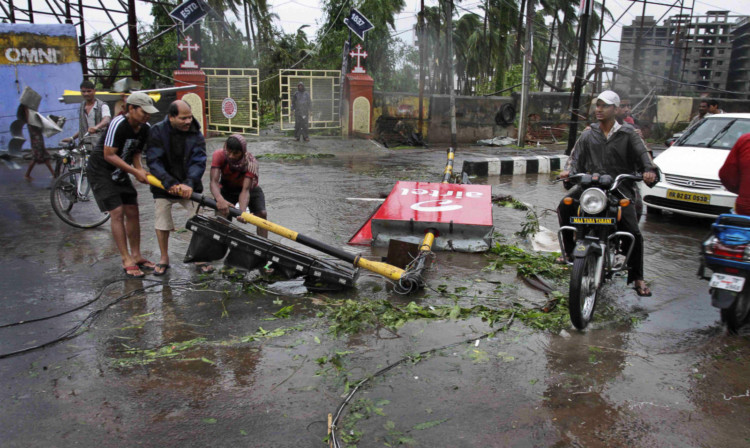Britain is ready to assist India with a massive clear-up operation after the devastation caused by Cyclone Phailin.
Prime Minister David Cameron and international development secretary Justine Greening both tweeted that the UK would do what it could to help.
Nearly a million people were forced to flee as the massive storm roared ashore, destroying tens of thousands of thatch homes, but early indications were that the death toll was relatively low, thanks in part to the mass evacuations.
Officials spoke of 17 fatalities whereas a cyclone of similar strength 14 years ago killed 10,000 people.
Mr Cameron’s tweet read: “The devastation caused by Cyclone Phailin is shocking. My thoughts and prayers are with those affected. The UK will do what it can to help.”
A spokeswoman for the Department for International Development said yesterday: “International development minister Alan Duncan is due to arrive in India on Tuesday morning.
“He is on a planned visit to review the UK’s transitioning development relationship with India announced in November 2012. He will take a close interest in what support can be provided following the cyclone.”
International aid agencies were already in place to help with the aftermath of the storm the strongest to hit India in more than a decade.
The cyclone reached land early on Saturday night and caused large-scale power and communications failures and shut down road and rail links.
Seawater pushed inland, swamping villages where many people survive as subsistence farmers in mud and thatch huts, and destroying hundreds of millions of pounds’ worth of crops.
“Damage to property is extensive, but few lives have been lost,” said Amitabh Thakur, the top police officer in the Orissa district worst-hit by the cyclone.
More than 870,000 people were evacuated in Orissa state and more than 100,000 in neighbouring Andhra Pradesh.
